French policies banning hijabs and abayas draw outrage at home and abroad
December 5, 2023 2024-03-05 17:15French policies banning hijabs and abayas draw outrage at home and abroad
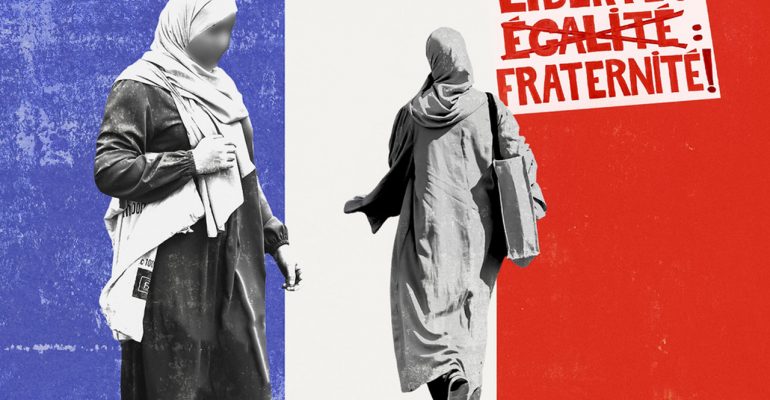
French policies banning hijabs and abayas draw outrage at home and abroad
France’s recent prohibitions on hijabs in sports and abayas in schools have ignited protests domestically and globally.
France’s Sports Minister Amelie Oudea-Castera announced on 3rd September 2023 that French athletes w the French country’s athletes will be barred from wearing hijabs or other religious symbols while competing at the upcoming 2024 Summer Olympics in Paris. The announcement was made during her appearance on a show ‘Sunday in Politics”, which aired on France 3.
The minister stated that the ban upholds France’s principle of “strict secularism” and will apply to all members of the French Olympic team. She referenced a recent ruling by the Council of State upholding a hijab ban for football matches, which has been enforced by the French Football Federation since 2016. Her announcement contradicts a policy by the International Olympic Committee (IOC), which considers hijabs a cultural rather than religious symbol. An IOC spokesperson clarified that participants can wear hijabs in the Olympic Village, saying “There are no restrictions on wearing the hijab.”
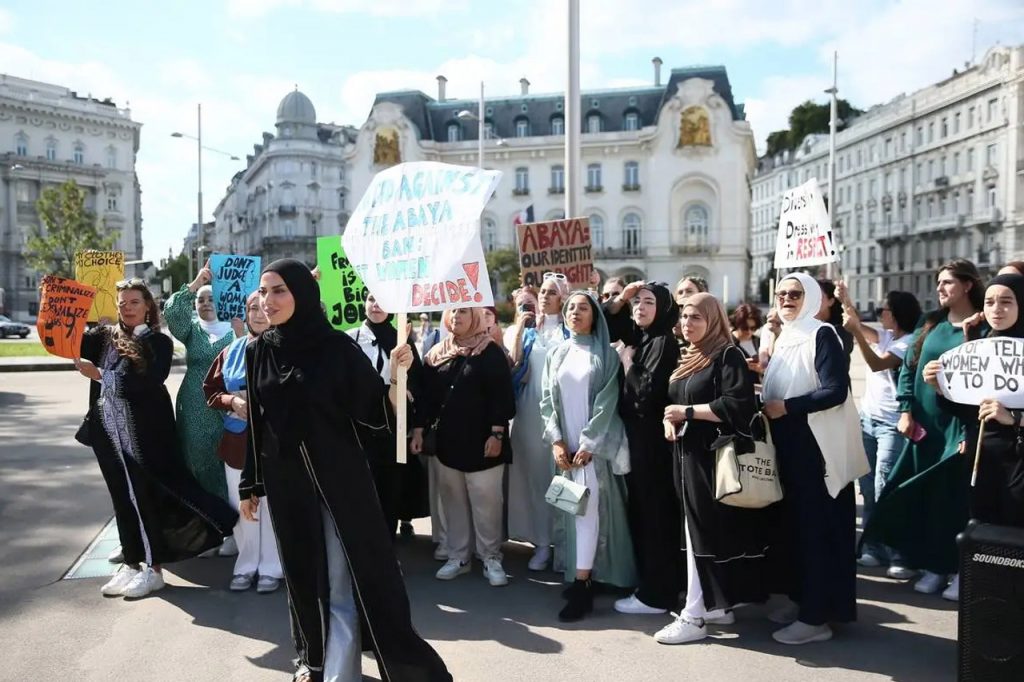
The International Olympic Committee had ruled that participants in the Paris 2024 Olympic Games are free to wear a headscarf known as a hijab in the Athletes’ Village, just days after France’s sports minister barred it for the host country’s athletes. In response to the restriction imposed by the sports minister. A spokesperson for the Olympic body said it was in contact with the French Olympic Committee (CNOSF) to better understand the situation with the French athletes.
“For the Olympic Village, the IOC rules apply,” an IOC spokesperson said to Reuters news agency. “There are no restrictions on wearing the hijab or any other religious or cultural attire.” The Olympic Village becomes home to most of the 10,000 athletes who attend the Olympic Games, where they share common spaces such as dining halls and recreational facilities.
The International Olympic Committee (IOC) stated that athletes are only subject to the rules of their sporting federations at the Olympic Games. “For sporting competitions at Paris 2024, the wearing of the hijab is dependent on the competition regulations set by the relevant International Federation (IF). In the Olympic Village, athletes are free to wear the Hijab at any time,” an IOC spokesperson wrote.
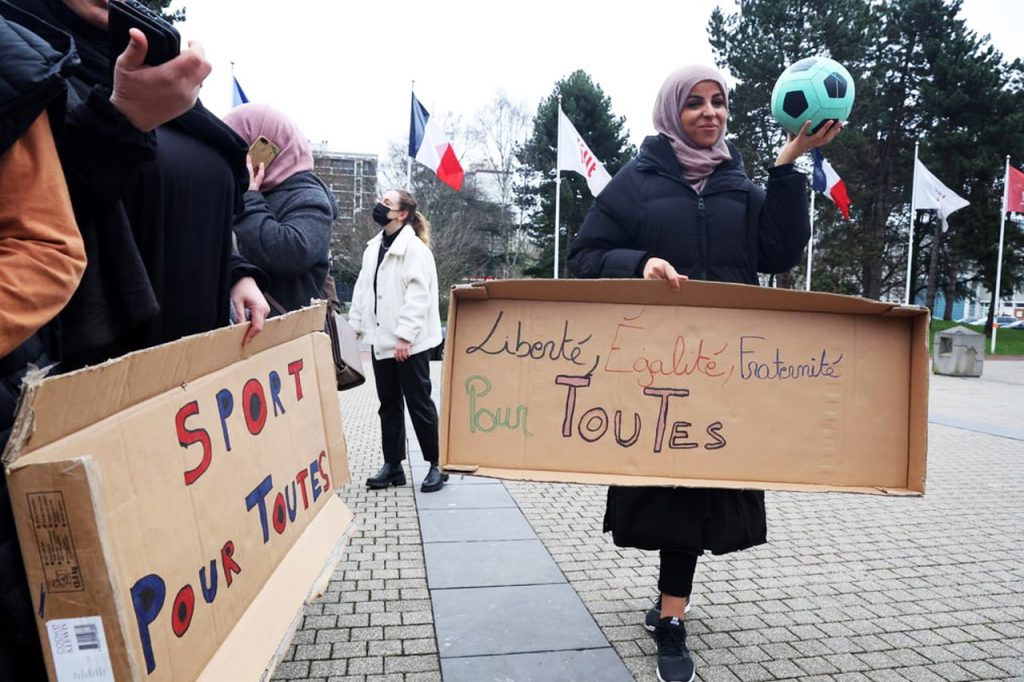
The decision provoked strong criticism internationally. On 27th September, the United Nations human rights office accused France of wrongly dictating what women must wear. United Nations Rights Office spokeswoman Marta Hurtado said in a statement said that no one should impose on a woman what to wear or not to wear.
The Riyadh-based Islamic Solidarity Sports Federation which represents 59 countries denounced the Olympic hijab ban as infringing religious freedom and barring Muslim participation. In the statement from the Athletes Commission of the ISSF posted on its social media channels, it said that the ban contradicts the principle of equality, inclusivity and cultural diversity which is at the very core of what the Olympics stands. The Hijab as an aspect of many Muslim women’s identity must be respected. According to the statement, the ban “not only infringes upon the religious freedom of French Muslim athletes but could also deny them the opportunity to participate in the Olympics, representing their country and inspiring others. “The statement I claimed that the ban was an attack on sportswomen from around the world, not just Muslim athletes hoping to represent France at Paris 2024.
FIFA also expressed concerns that the prohibition may prevent some Muslim female athletes from competing in Paris 2024. In 2014, FIFA lifted its own 2007 ban on hijabs during matches after deeming the initial restriction discriminatory.
The hijab prohibition compounds existing tensions around French policies targeting Muslims. The announcement comes at a time when France is already under scrutiny for its ban on abayas in schools, a move that has drawn widespread criticism and triggered accusations of discrimination against Muslim women.
Abaya ban in French Schools
On August 28, 2022, the 34-year-old newly appointed France’s Minister of National Education and Youth Gabriel Attal announced a prohibition on students wearing the abaya, a long loose-fitting robe traditionally worn by some Muslim women, in public schools. Attal claimed the ban upholds France’s secularism (laïcité) against conspicuous religious symbols.
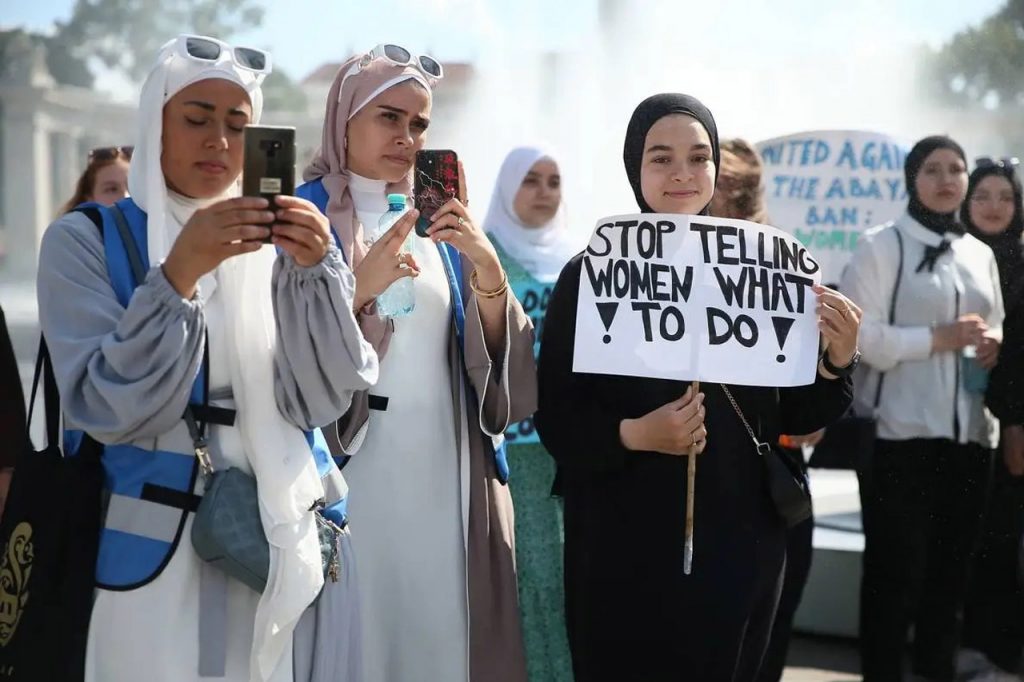
Domestic Reactions
France’s Council of the Muslim Faith, a national body established to represent Muslims before the government in France, warned that banning the garments could create “an elevated risk of discrimination” and said it was considering lodging its court complaint with the Council.
On August 31, Action for the Rights of Muslims (ADM) – an association representing Muslims – filed a motion with the State Council seeking an injunction against the ban saying it was discriminatory and could incite hatred against Muslims. Vincent Brengarth, a lawyer for the Muslim Rights Action (ADM), filed an appeal with the Council of State to seek the suspension of the ban on the abaya which he said violates “several fundamental freedoms.”
He argued during the court hearing that the abaya should be considered a traditional garment, not a religious one. He also accused the French government of seeking political advantage with the ban.
The French Council of Muslim Faith (CFCM), a national body encompassing many Muslim associations condemned the ban and said that the items of clothing alone were not “a religious sign”.
On 4th September, nearly 300 school girls defied the ban and refused to remove their abayas on the first day of the French school year this week. On 5th September Education Minister Gabriel Attal in one of his interviews on BFM TV (BFM TV (pronounced [beɛfɛm teve], stylised as BFMTV) is a 24-hour rolling news and weather channel based in France and available globally via digital, cable and satellite television) said that most of the students agreed to change their garments but 67 refused and were sent home.
On 6th September, students and teachers at the Maurice Utrillo High School in Stains near Paris staged a strike opposing what they called an “Islamophobic” abaya ban. “We want to distance ourselves from the government’s Islamophobic policy,” read a statement from the protestgroup.
On 7th September, the Council of State rejected the ADM’s appeal, saying: “This ban does not seriously violate and is not manifestly illegal to the right to respect for private life, the freedom of religion, the right to education.”
Vincent Bergranth described the decision as very unmotivated and simply endorsing the government’s position.
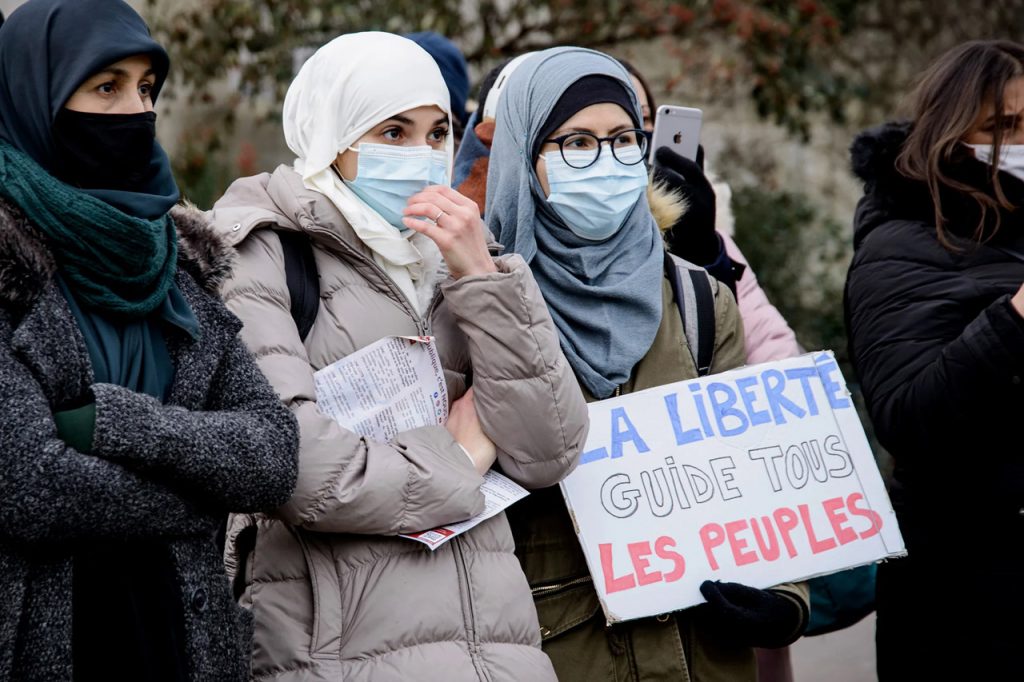
Agnes De Feo, a renowned French sociologist said that the ban is going to hurt Muslims in general and they will feel stigmatised. He said, “ It’s really a shame because people will judge these young girls while it [the abaya] is a teenage expression without consequences.”
Clementine Autain, an MP for the hard-left France Insoumise, also criticised the ban and called it “clothes police” and a move “characteristic of an obsessional rejection of Muslims”.
Loubna Regui, president of the ELF(Etudiants Musulmans de France) -Muslim Students of France described the ban as “inherently racist” and targetting immigrants.
Abdallah Zekri, vice-chair of the French Council of the Muslim Faith denounced the ban. He described the abaya as a type of fashion and not a religious garb.
The government spokesman Olivier Veran on the other hand described abaya as “obviously” religious and “a political attack, a political sign”. He deemed the wearing of the abaya to be an act of “proselytising”.
Right-wing politician Eric Zemmour head of the Reconquest party described the ban as a good first step.
To enforce the abaya ban, Gabriel Attal has previously announced that 14,000 educational personnel would be trained by the end of this year, with that number rising to 300,000 by 2025.
According to a poll by the IFOP polling organisation, 81% of French people support the bans on the abaya and qamis and consider their “religious character” undeniable.
Global condemnation
Commenting on the ban, Ali Al-Qaradaghi, the Secretary-General of the Qatar-funded International Union of Muslim Scholars (IUMS), published a post on X platform, formerly known as Twitter, on September 4, 2023, in which he described it as a “racist policy” and a “step in the wrong direction.” Accusing the ban of reflecting a racist policy against Muslims in France, Al-Qaradaghi argued that “it would be difficult to imagine banning clothing that represents the religious identity of a specific group without discriminating against this group.”
Moroccan Islamic scholar and former president of the Qatari-funded IUMS, Ahmad Al-Raysouni, argued in an article titled “Shaken Secularism,” published on the IUMS website on September 3, that the abaya ban is an indication that France “is fearful for its shaken secularism… and works to protect it from anything that carries the scent of Islam. Al-Raysouni further questioned the timing of the abaya ban while France is currently facing internal and external challenges, stating, “What suddenly made it incompatible with the preserved French secularism?”
Sheikh Muhammad Al-Saghir, a Turkey-based Egyptian Islamist cleric, and a former Member of Parliament in the Muslim Brotherhood government of Egypt, accused France of waging war on Islam. In a video released on the X platform, he said, “France raises the banner of anti-Islam by tightening control over mosques, associations, centres, expelling imams, and combatting religious practices.
Paris-based cleric Cheikh Zakaria Seddiki, who is the director of La Maison Des Savoirs, declared that the ban goes against the principles of the French state, where secularism, as they claim, is the separation of religion and state.
Saudi Major General Abdullah Ghanem Al-Qahtani condemned the decision to abaya ban and described it as an unnecessary decision. In a post on X, he said “Instead of banning abayas, which he believes are not even popular in Muslim countries, Al-Qahtani suggested that Macron’s advisors and senior assistants should advise the president that “millions of Muslim French citizens, if their culture and beliefs were respected, and if their education and job opportunities were improved, would love their country more and defend it more than what far-right extremists claim they would.” He warned the French government that such decisions could lead to dangerous consequences.
Abdallah Ben Mansour, the former head of the Federation of Islamic Organizations in Europe, considered the ban as a part of an ongoing campaign against Islam, and as a distraction from France’s economic problems, as well as an attempt to cover up its failure to address other pressing issues.
The Secretary-General of the United Nations, António Guterres on 19th September implicitly opposed the abaya ban in French schools. Addressing representatives of states worldwide, the Secretary-General of the United Nations (UN) condemned the ban on the abaya in public schools. He spoke in French and stated: “In some countries, women and girls are punished for wearing too much clothing. In others, because they don’t wear enough.”
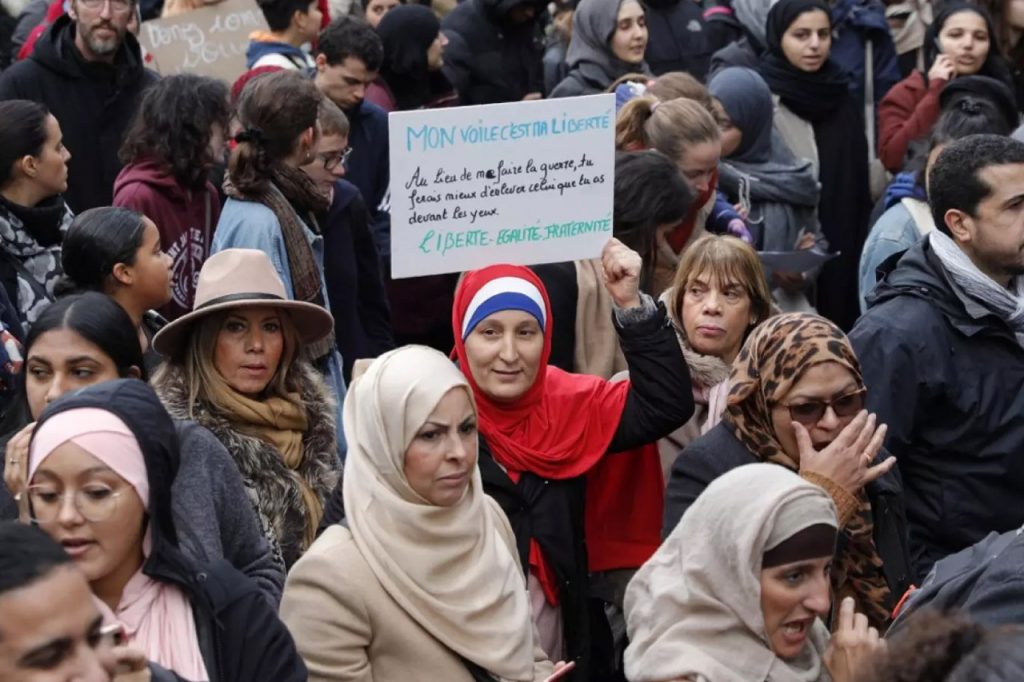
The UN top official ended his speech on the abaya with a call to revolt, in the name of “women’s rights. . . girls and women are defying patriarchy and triumphing. I stand with them.”
The UN Human Rights Committee listed these restrictions among its “principal subjects of concern and recommendations”. It has also ruled in favour of women who wear the niqab in public, challenging the 2010 law banning the concealment of the face.
Ahmed Shaheed, the expert appointed by the UN to promote religious freedom, considered French laws on religious clothing to be “Islamophobic.” His report on the subject, entitled “Combating Islamophobia” (2021), echoed the Programme of Action of the powerful Organization of Islamic Cooperation (OIC).
The Council on American-Islamic Relations (CAIR) also condemned France’s bans on abayas in schools and hijabs at the 2024 Olympics. On 26th September 2023, CAIR sent a letter to Secretary of State Antony Blinken, urging the U.S. government to denounce these policies violating religious freedom forcefully. CAIR Director Robert S. McCaw said France’s intolerance towards its Muslim citizens demands international action. He argued the U.S. should compel France to respect the rights of all citizens, including Muslims, and investigate its recurrent breaches of religious liberties. CAIR highlighted
discriminatory restrictions on Muslim expression leading to inequality. It called for inclusive policies respecting France’s diverse society.
It’s yet to be seen how the abaya ban will affect France, which has the highest number of Muslims of any country in Europe, making up about 10 per cent of its population, especially the students.
Source: Euro-Islam.info








